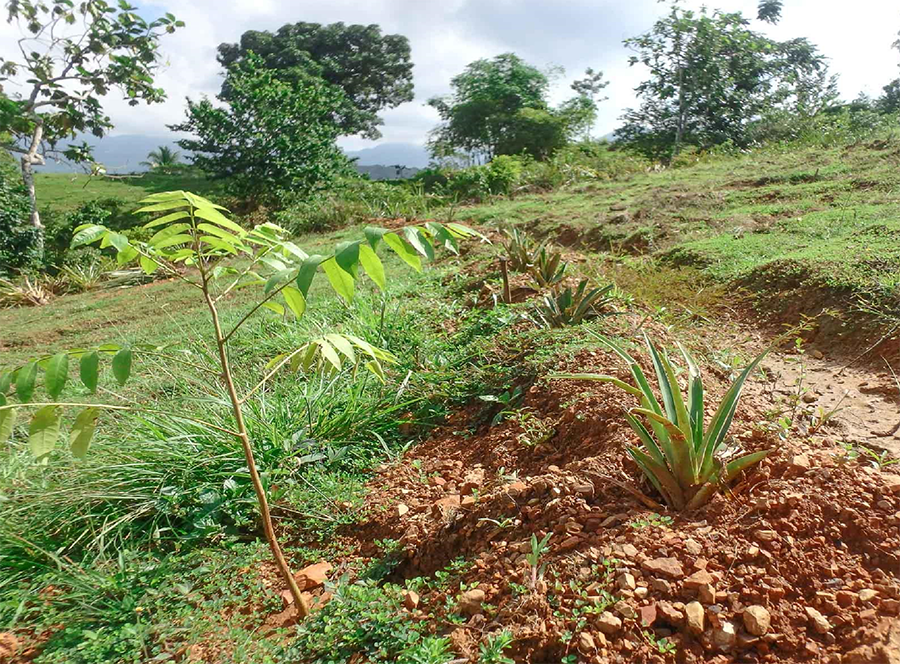Haiti—Projet Paysages Résilients-Nord (PPR-Nord)
Client: U.S. Agency for International Development
Duration: 2023-2028
Region: Latin America and the Caribbean
Country: Haiti
Solutions: Environment Climate
In Northern Haiti, the Bahon, Joli Trou-Cormier, and Les Perches sub-watersheds provide critical environmental benefits to local communities. Water availability, erosion control, and forested watersheds are particularly important for the sustainability of crop and livestock production on which these communities rely on for income and food.
While many households in these sub-watersheds are aware of natural resource management (NRM) practices, a majority live in poverty and lack the time and money to put these practices to use. With drought and intense natural disasters brought on by climate change, prioritizing the ecological health of the sub-watersheds is an imperative.
To help address these issues, the U.S. Agency for International Development designed the Projet Paysages Résilients-Nord (PPR-Nord) (Resilient Environment North) Activity intends to build communities’ resilience to reduce vulnerability and to facilitate growth. PPR-Nord promotes sustainable watershed management practices across households, communities, and sub-watersheds.
The project uses a community-led watershed management approach based on three pillars: local ownership, incentives, and capacity building. Therefore, for any activity to be implemented, the PPR-Nord team involves the departmental directorates of the North and North-East of the Ministries of Agriculture, Natural Resources and Rural Development (MARNDR) and Environment (MDE), communal leaders, households, landowners, community organizations, and sub-catchment management committees. Simultaneously, PPR-Nord works on improving the organizational and technical capacity of communities and project partners. This approach ensures that PPR-Nord will leave behind more self-reliant communities and interventions that lead to long-lasting impacts.
The project aims to engage 50,000 farmers in environmentally and economically productive restoration activities; improve 11,000 hectares of land by forest landscape restoration practices, forestry technologies, and better land management all contributing to climate risk reduction and sustainable natural resource management; and ensure that 30 percent of women and 50 percent of young people are participating in watershed governance and leadership.

Sample Activities
- Facilitate community watershed vision workshops.
- Increase farmer incomes from sustainable agroforestry products.
- Improve incomes and savings from intensified agriculture.
- Improve charcoal production practices for incomes and environmental sustainability.
- Promote social and behavior change for improved watershed management.
- Install physical infrastructure to combat erosion.
RELATED CONTENT:
Worldwide—Climate and Ocean Adaptation and Sustainable Transition (COAST)
The U.K. Foreign, Commonwealth and Development Office (FCDO) Climate and Ocean Adaptation and Sustainable Transition (COAST) program works to improve vulnerable coastal communities’ resilience to climate change and prosperity from a more sustainable use of their marine environment.
Read More